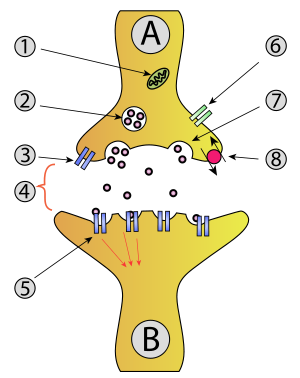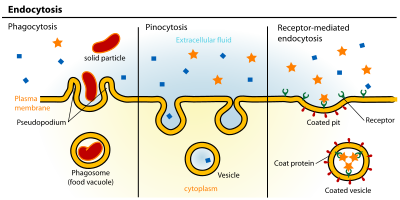
Exocytosis (/ˌɛksoʊsaɪˈtoʊsɪs/; from Greek ἔξω "out" and English cyto- "cell" from Gk. κύτος "receptacle") is the durable, energy-consuming process by which a cell directs the contents of secretory vesicles out of the cell membrane and into the extracellular space. These membrane-bound vesicles contain soluble proteins to be secreted to the extracellular environment, as well as membrane proteins and lipids that are sent to become components of the cell membrane. However, the mechanism of the secretion of intravesicular contents out of the cell is very different from the incorporation in the cell membrane of ion channels, signaling molecules, or receptors. While for membrane recycling and the incorporation in the cell membrane of ion channels, signaling molecules, or receptors complete membrane merger is required, for cell secretion there is transient vesicle fusion with the cell membrane in a process called exocytosis, dumping its contents out of the cell's environment. Examination of cells following secretion using electron microscopy demonstrate increased presence of partially empty vesicles following secretion. This suggested that during the secretory process, only a portion of the vesicular content is able to exit the cell. This could only be possible if the vesicle were to temporarily establish continuity with the cell plasma membrane, expel a portion of its contents, then detach, reseal, and withdraw into the cytosol (endocytose). In this way, the secretory vesicle could be reused for subsequent rounds of exo-endocytosis, until completely empty of its contents.

Endocytosis is an energy-using process by which cells absorb molecules (such as proteins) by engulfing them. It is used by all cells of the body because most substances important to them are large polar molecules that cannot pass through the hydrophobic plasma or cell membrane. The opposite process is exocytosis.
No comments:
Post a Comment